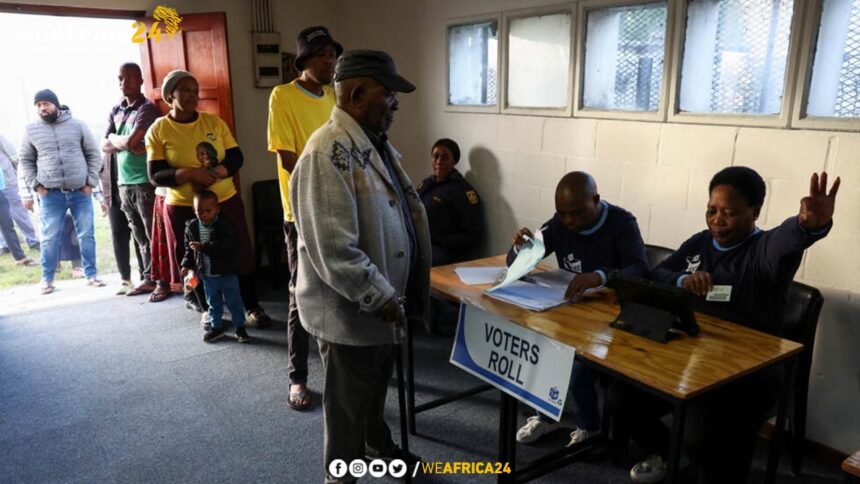As of this morning at 7 a.m., more than 23,000 polling stations opened around the country for 27 million potential voters, who can exercise their right to choose parliamentary representatives, who in turn will elect a president and regional councilors.
The vote could constitute a real watershed for the nation, especially if the predictions made from the latest polls come true, and the ruling party, the African National Congress (ANC), is defeated, losing its current absolute majority in the National Assembly, which it has held uninterrupted since the end of apartheid.
Polling stations opened Wednesday, May 29th, for what is being described as the most hotly contested legislative elections in South Africa over the past thirty years. By the time polls close at 9 PM, some 27.6 million registered voters are expected to have voted to choose 400 members of parliament.
A High-Stakes Parliamentary Election: The parliamentarians being elected will be saddled with the very big task of electing the president of the country. This high-stake election could portend a sea-change of sorts for South Africa in case the ANC and its leader, Cyril Ramaphosa, are not able to lead an absolute majority in the National Assembly, something that has not happened since 1994. ANC, the party of Nelson Mandela, has been in power since 1994 and has been witnessing a steady decline in its influence and dominance in each round of elections.
Voters Queue at Polling Stations in Soweto: The doors of this polling station in the South West Johannesburg township of Soweto have opened as the queues already started forming in the early hours of the morning. As reported by our correspondent on the ground, Claire Bargelès, the staff of the electoral commission was more than eager to receive the first voters.
Earlier, police escorted the arrival of the ballot papers to the high school in Soweto that has been turned into a polling station. This has special historical resonance: Morris Isaacson High School was from where the Soweto student uprising of 1976 started—a momentous event in the struggle against apartheid, which was met with brutal repression.
The number of voters casting their ballots this morning was steady at the polling station, but it was not still a full crowd. Voters were handed three ballots upon entering the public school turned polling station, one for each concurrent national and regional elections.
The ballots are unusually lengthy, with about 70 parties and a few independent candidates on the ballot. The voters were then taken to vote in private booths, and finally their thumbs were dipped in ink to mark that they had voted. The scene on Wednesday contrasts dramatically with the long lines witnessed in the country’s first free elections in 1994.
A Call for Free and Fair Elections: Found one of the other polling stations, a little west of Johannesburg, with an already swelling joint. Our correspondent, Romain Chanson, says there are over 200, possibly 300, present, and the numbers are continually increasing.
Good enough, this polling station opened in good time, much to the huge relief of the many who were forced to queue outside in the cold—it is winter here in South Africa. The chairperson of the station gave a very strong speech at the opening, calling on South Africans to maintain their democratic values and respect for political opinions so that the elections could be free and fair.
The large number of people in a particular voting station, unlike in Soweto, showed a need from this segment of the population to see change. Many of them have raised the hope to unseat the ANC in this election.







